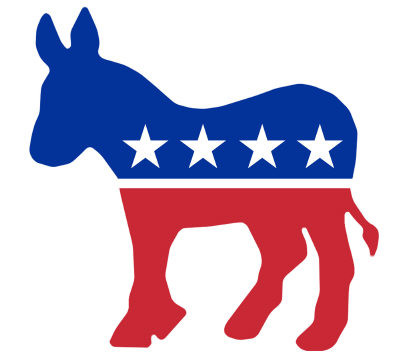Rob Horowitz: The War On Poverty, 50 Years Later
Tuesday, January 14, 2014
We may not have declared victory in the War on Poverty yet, but we are certainly not fighting a losing battle.
It is accurate to say that most Americans do not view the War on Poverty as an unqualified success. A majority don’t go as far as President Reagan did when he famously said, "In the sixties we waged a war on poverty, and poverty won." But a recent poll conducted for the Center for American Progress shows that only 1 in 5 Americans believe that the War on Poverty has made a major difference. An additional 41 percent say that it has made a minor difference.
Not surprisingly, attitudes about the War on Poverty break down along largely partisan, ideological, and racial lines. For example, as the report states, “Nearly 7 in 10 (69 percent) white liberals and progressives believe the War on Poverty has worked, and more than 6 in 10 (64 percent) white conservatives and libertarians believe the opposite”.
GET THE LATEST BREAKING NEWS HERE -- SIGN UP FOR GOLOCAL FREE DAILY EBLASTThese mixed views are understandable when one considers that the official poverty rate in the United States has only dropped from about 19% when the War on Poverty was launched 50 years ago to about 15% today.
Great progress made...
However, the official poverty rate, because it does not count the assistance provided by the very programs put in place by the War on Poverty, dramatically understates the real progress that has been made. As the Center on Budget and Policy Priorities’ Arloc Sherman points out, “A poverty measure that, as most analysts recommend, accounts for (rather than ignores) major non-cash benefits that the official poverty measure leaves out—namely, SNAP (the Supplemental Nutrition Assistance Program, formerly called food stamps), rent subsidies, and tax credits for working families—would find that poverty in the United States today is considerably lower than it was throughout the 1960s, despite today’s weaker economy."
Sherman adds, “Average household income for the bottom fifth of Americans (counting non-cash benefits and tax credits, adjusted for inflation and changes in household size) was more than 75 percent higher in 2011 than in 1964.
...But more work to be done
Still, by anyone’s measure there are too many Americans who remain mired in poverty, and 1 in 5 children today grow up in households who fall below the official poverty line. Even with the use of a more accurate measure of poverty, that still leaves far too many of our kids without the basic building blocks essential to future success and happiness.
The best answers to poverty then and now remain expanding opportunity, access to a quality education, and good paying jobs available for people who work hard and play by the rules. In today’s tough, competitive, and volatile global economy, there is even more of a need for a strong safety net. But it is not the ultimate solution. Let’s use the 50-year mark on the War on Poverty to spur a competition for the best ideas to generate significant growth in middle income jobs—ones where people earn enough so they can raise a family. We may never completely defeat poverty, but we can sure continue to significantly reduce it.
Rob Horowitz is a strategic and communications consultant who provides general consulting, public relations, direct mail services and polling for national and state issue organizations, various non-profits and elected officials and candidates. He is an Adjunct Professor of Political Science at the University of Rhode Island.
Related Slideshow: 10 Questions Gina Raimondo Has to Answer When Running for Governor
Related Articles
- Rob Horowitz: Chris Christie’s Big Moment Is Coming Soon
- Rob Horowitz: King, Obama + Citizen Activism
- Rob Horowitz: States Stepping Up On Climate Change
- Rob Horowitz: Climate Change On the Table… Finally!
- Rob Horowitz: Newtown- One Year Later
- Rob Horowitz: Time To Find Common Ground, Congress
- Rob Horowitz: Comprehensive Immigration Reform Is Back
- Rob Horowitz: Obama Leads National Conversation on Trayvon Martin
- Rob Horowitz: Tough Fight Coming On Immigration Reform
- Rob Horowitz: 5 More Reasons for New Year’s Optimism
- Rob Horowitz: Finally, Some Common-Sense Drug Sentencing
- Rob Horowitz: Obama Steps Up on Climate Change
- Rob Horowitz: Trust in Media Near an All Time Low
- Rob Horowitz: A Teaching Lesson at Brown
- Rob Horowitz: Food Stamps Are the Wrong Political Football
- Rob Horowitz: Obamacare—Hold the Shovels
- Rob Horowitz: At Last: A National Budget Agreement
- Rob Horowitz: Government Shutdown A Disaster for House Republicans
- Rob Horowitz: RI’s Minimum Wage Boost Good News For Families
- Rob Horowitz: Campaign To Strangle Obamacare In Its Crib Will Fail
- Rob Horowitz: House Republicans Hold Debt Ceiling Hostage—Again
- Rob Horowitz: Rhode Island’s Self-Esteem Campaign Needs More Money
- Rob Horowitz: Chafee Takes Himself Out of the Game Too Soon
- Rob Horowitz: Kennedy: A Vision of What We Can Do Together
- Rob Horowitz: Speaker Boehner Joins the Shutdown and Default Caucus























